The Orientation of Dylan Woodger, the latest mystery by Chiuba E Obele
Guest Post + Book & Author Info
The Orientation of Dylan Woodger
Solving mysteries is never easy. Dealing with an infuriated mob boss and acute amnesia only makes it worse.
Dylan Woodger is a college student who is captured and tortured by the mafia. After amnesia obscures the last three years of his life, Dylan learns that he has stolen three million dollars from a ruthless mafia boss. When, how, and why – he doesn’t remember. But someone betrayed him and gave him a drug that erased his memory. He was then given over to be tortured.
Determined to recover his memory, Dylan begins delving into the events of the past. As he struggles to put the pieces of his past back together, Dylan finds himself wrapped up in a path of vengeance made even more perilous by the presence of assassins, gangsters, and detectives. But as each new piece of the puzzle falls into place, Dylan realizes that no one is who they seem, especially himself. He now has links to rapists, white supremacists, and murders. People who claim to be his friends are hiding secrets from him. And his girlfriend is beautiful, but that’s all he knows about her. Who are these people? And who is Dylan? Even he doesn’t know!
The Orientation of Dylan Woodger is the story of a young man who is torn between his capacity to do evil and his desire to do what’s right. This book explores racism and feminism, and addresses controversial topics such as male rape, hate crimes, and misogyny toward women. The characters are disturbing, but the book aspires to be hopeful, as these characters ultimately succeed in finding some measure of humanity.
There are so many unanswered questions . . . But first, Dylan must survive the torture.
To purchase The Orientation of Dylan Woodger, click on any of the following links: Amazon | Goodreads
Genre: Mystery
Published by: Fischer House Publications
Publication Date: April 19, 2022
Number of Pages: 377
ISBN: 9798985146400
Guest Post by Chiuba E Obele, Author of The Orientation of Dylan Woodger
The pitfalls of depicting rape in fiction and why authors should exercise caution when writing fictionalized portrayals of sexual assault.
Trigger warning: this post discusses the topic of sexual violence in fiction.
This blog post is not about rape survivors who choose to share their stories through writing. Such real-life accounts are as difficult to write as they are important. We should always support survivors who speak openly about their experiences. Rather, this is a blog post about fiction. I’m not talking about authors who try to educate themselves about sexual assault and portray it with integrity and care. I’m talking about authors who feel the need to include sexual assault in their stories solely as a plot device.
When authors seek ways to heighten the stakes of their novels, rape can become a go-to device. In popular fiction, rape is often utilized to either (a) provide evidence of an antagonist’s evil nature; (b) make male characters heroic because they save helpless women from rape or at least seek vengeance for them; or (c) showcase the tragic backstory of a female character.
Rape is often used to develop a male character’s story, either to show how evil he is, or to provide a catalyst for his revenge quest. In such cases, the actual victim’s trauma is sidelined for the male character’s anger, sorrow, or revenge. Too often, women and their abuse are treated as a tool for inspiring feelings, reactions, and character development in men. The story of their rape is not about them or how it affects them; it’s about the man. In other words, women are acted upon rather than acting. While it’s important to write compelling male characters, characterization and narrative strength must be written in a manner that prevents women from becoming passive objects. As author Rob Blair Young writes, “If female characters are consistently being disempowered for the sake of making men more hateable or likeable, then that’s not okay.”
The same problem occurs when writing backstories for female characters. Whether it’s used to drive a heroine’s revenge story or provide us with an understanding of her character, rape as a backstory is a common literary trope. These stories are usually meant to be cathartic and powerful, but a gender comparison is quite revealing: when male characters are disempowered at the beginning of their arc, they are almost never raped. And too often, authors use rape scenes or backstories to explain female characters’ behavior, without addressing sexual assault and its lasting psychological impacts.
When authors are tempted to use these tropes, they must bear in mind that countless people have suffered some form of sexual assault. Survivors of sexual assault, many of whom are diagnosed with post-traumatic stress disorder, can flash back to the trauma of their sexual assaults by all sorts of triggers in the world around them: a person, a location, or even something as subtle as a smell. Sometimes these triggers manifest in nightmares, physical sweating, and emotional responses. The trauma associated with sexual assault can also be triggered by its exploitation in fiction. While not all survivors are triggered by literary tropes that involve rape, avoiding these tropes can be a great way to not re-victimize survivors with our words.
Aside from the fact that rape scenes in novels can act as distressing triggers for many people, there’s also the reality of dealing with a sensitive topic in a way that has unintended consequences. As author Rebecca Kelly puts it, “What we read and watch influences the way in which we view rape, and with survivors’ voices so often being ignored and disbelieved, not tackling the subject with this in mind can only compound the undermining of survivors and squander the opportunity to raise awareness.”
But what if you’re writing about sexual violence not as an emotional shortcut or a cheap attempt at characterization, but because it’s important to your story? Well, in such a case, you should always start by doing research. Read about the dynamics of rape and power. Read about rape myths. Read about statistics and research that debunk those myths. And read books written by survivors. When I chose the subject of male rape for The Orientation of Dylan Woodger, I extensively researched the trauma that I brought to bear on my protagonist, and when I finally wrote his story, I had a deeper sense of him not only as a rape survivor but as a person, too.
Another important consideration when using rape as subject matter in fiction is that the experience is never over for the victim when the scene ends. Indeed, one of the aspects of The Orientation of Dylan Woodger that I believe reflects the lived experience of survivors is that it shows that the effects of sexual assault are not short-lived, but rather, they infiltrate every part of a survivor’s life. Sadly, too many novels use rape as a plot device without considering what that experience might be like for an actual person. As Kelly writes:
“A responsible writer, if they have not gone through what their characters have, owe it to their readers and themselves to research in depth so that they can understand what that world might truly feel like for their character. No major character in a novel should be left at the moment of trauma and be expected to continue throughout the rest of the pages as if nothing had occurred.”
Here, Kelly makes another excellent point. A story about a rape survivor — if it is written accurately and informed by research— has the potential to educate readers about the life-long consequences of sexual assault.
But most importantly, before a writer includes a rape scene in their story, they must always ask themselves, “Why is it necessary?” As one Reddit user explains:
“Ultimately, it comes down to Craig Ferguson’s Three Questions. Any time you start feeling nervous about what you’re writing, you should ask yourself these three questions: (1) Does this need to be said? (2) Does this need to be said by me? (3) Does this need to be said by me right now?”
I don’t believe in censoring fiction, but unless your novel is specifically about sexual assault, you should probably remove rape scenes from your story. This is partly because such depictions can sometimes be hurtful to survivors. Granted, there are stories about rape that are worth telling, but without extensive research into the problems that rape survivors face, it’s too easy for fictional depictions to contribute to those problems rather than alleviate them. Besides, there are so many other ways of telling stories without having to lean on a trauma experienced by thousands of people every day. So if you’re an author who is thinking about inserting a rape scene into your story, try to do without it if you can, but if you feel your story would be destroyed without that scene, then consider putting it in only as a last resort.
Don’t miss any blog tour posts! Click the link here to read more.
Chiuba E Obele: Author of The Orientation of Dylan Woodger

CHIUBA EUGENE OBELE is a poet, writer, and author of The Orientation of Dylan Woodger: A Central New York Crime Story. He can usually be found reading a book, and that book will more likely than not be a crime fiction novel. Chiuba lives and works out of his home in Boston, Massachusetts. When not absorbed in the latest page-turner, Chiuba enjoys spending his summers vacationing with his parents, siblings, and nieces and nephews.
To learn more about Chiuba, click on any of the following links: ChiubaObele.com, Goodreads, Twitter – @ChiubaE & Facebook – @chiubaobele7
Visit All the Stops on the Tour!
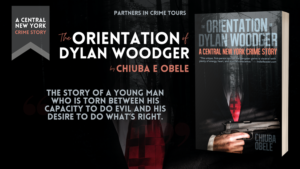
04/20 Showcase @ Books, Ramblings, and Tea
04/24 Guest post @ The Mystery of Writing
04/27 Interview @ Quiet Fury Books
05/02 Guest post @ The Book Divas Reads
05/04 Review @ Wall-to-wall Books
05/05 Review @ Ravenz Reviewz
05/06 Review @ Novels Alive
05/09 Review @ Pat Fayo Reviews
05/11 Review @ One More Book To Read
05/12 Showcase @ Celticladys Reviews
05/13 Review @ Nesies Place
08/16 Interview podcast @ Blog Talk Radio
08/16 Review @ Just Reviews
Partners in Crime/Author Giveaway!
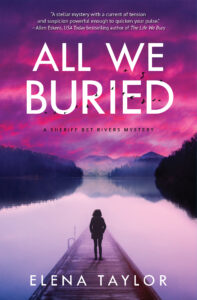 Elena Taylor is the author of All We Buried, available now in print, e-book, and audio book format at all your favorite bookstores and on-line retailers.
Elena Taylor is the author of All We Buried, available now in print, e-book, and audio book format at all your favorite bookstores and on-line retailers.
For more information on All We Buried, click on the link here to visit the home page.
Silver Falchion Award Finalist, Best Investigator 2020
Foreword INDIE Award Finalist, Best Mystery 2020

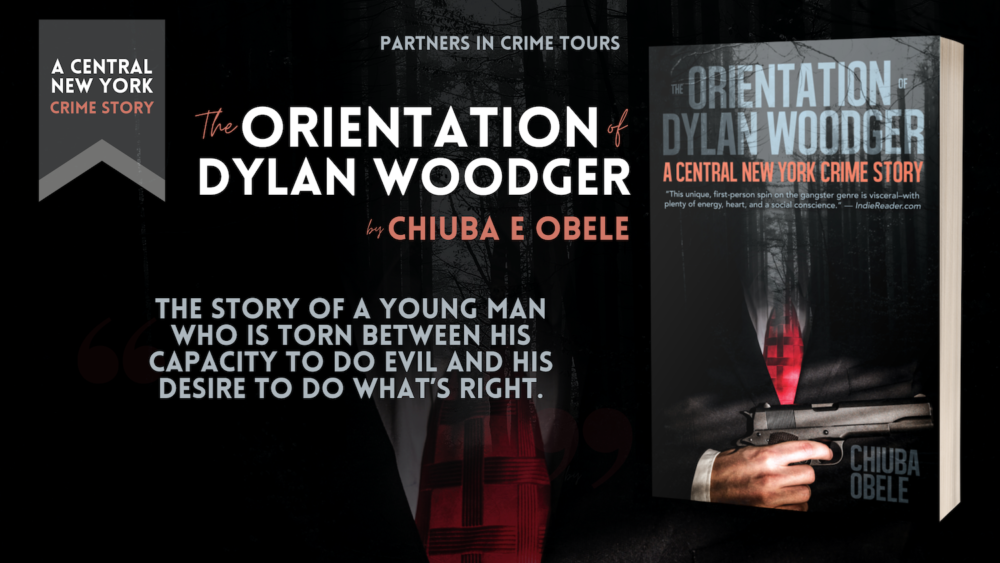
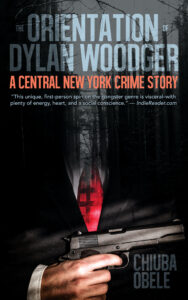
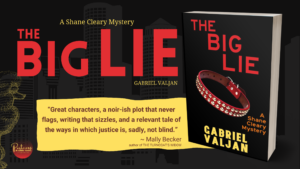
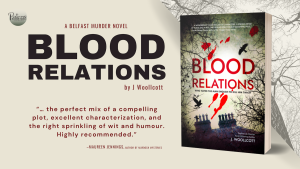
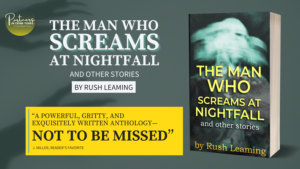
Great guest post! I will be reading this book soon, can’t wait!